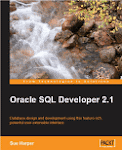I did a quick road trip this week. Just a hop across the Irish Sea to Dublin to meet one of the development teams there. What fun. It's been a while since I spent time with a development team brain storming and planning. I hope you understand "lost in the moment". For me it happens with things like photography, gardening and writing and sometimes work. It's when time becomes elastic and you get lost in it. (I tend to skip meals and don't sleep.) I'm not advocating this for every day, it's detrimental to life in general. Now we didn't do that in Ireland this week, but we didn't spend time clock watching either. We spent two full days sharing ideas, I learned about their product and talked about the product, its directions and future. It was great. [ I've talked about learning being good for the soul before]
Now you can have meetings that are good, but once you walk away from them, that's it. No actions, no plans, no ownership and that's worse than not having a meeting at all!
The product team I met with are the Migration Technology Group and they are building the Migration Workbench as an extension to SQL Developer.
You'll hear more about that team and the technology over the next few months. In short, the current Oracle Migration Workbench technology helps users migrate to Oracle from databases provided by companies like Microsoft, Sybase, and Informix. The Migration Technology Center on OTN offers information on the existing product.
Back to Meetings
Don't you just love 'em? hmmm. I've worked in teams where I think some folk rate their importance factor by how many meetings they attend. So for meetings do you picture some attendees arriving late and dashing off early, meetings running over, there is no agenda, there are no actions and the result? Well, there are no results!
Good meetings are fab, specially if you are a distributed team. They can be stimulating and productive. I think a good meeting has an agenda, a good leader (who ensure everyone is involved and no-one dominates) and ends with a set of actions (with owners). Minutes are useful too. It means we all know the actions and have a note of what was said and decided, so that we don't have to have THAT meeting content again. (To redecide an action previously decided). I'm not a stickler for minutes, but a list of actions and owners is a good thing.
Take the meetings in Dublin this week, I used a mapping tool to note the discussions. They're my notes and are not verbose, but they're not on bits of paper, instead I have them in a mind mapping tool. The great thing is, I can share the results with the team at a click.
Let me go back a pace. Just before I joined the SQL Developer team, I started drawing 'mind maps' - you might also think of them as spider diagrams. Basically, just listing the variety of tasks I might get involved in if and when I joined the team. Conferences, customers, writing collateral, bug reviews, forums, web sites etc. Each time I thought of something new I'd add it. A friend told me about Mindjet's MindManager and so tried their 30 day trial version. When my manager saw how useful this was to me, he said "order it". There are mapping tools in the open source world too, so take a look at what's available, if you're not able to purchase this. (They don't have a Mac copy just yet - you gotta go open source for that)
I've written a white paper, a few magazine articles (to come out in the next few months), "Getting Started with SQL Developer" and some presentations and I used Mind Manager for all of these. You start with a spider diagram of ideas, flesh them out and 'generate' a power point presentation, word doc, html or even Microsoft Project. Then you have a great starting point. Doing the articles this way helped me with the flow. I am not managing any multi- people projects, but I've heard it works a treat for tasks and dependencies in Project. How often do you go back to your notes and look for something ( or never go back...worse) With software to help, you can search. With this tool, I can search across maps (meetings). I can also hook into google searches and news feeds!
So back to my meetings this week. All my notes ended up as maps, and at the end of it all, I added a power point template and created a presentation for the team, to keep as a record of the meetings and the decisions.
I did not write this blog using Mind Manager, so if it's rambly and all over the place. That would explain it.
hey - take a look at OTN - of you've never used SQL Developer, perhaps you don't have access to your own database, then try Oracle Express Edition (FREE) and check out SQL Developer. There's a Getting Started with SQL Developer guide.
Control your SQLcl MCP server database access
6 months ago






7 comments:
Thanks for the feedback on SQl Developer.
I'm considering using a Map for my next talk...we'll how that goes.
Sue
MindJet has been solicating people to help test a Mac version of MindManager, so it's apparently coming.
Sue, welcome to blogger!
I've been using MindManager for a while now. On Conference calls I no longer jot notes down on paper, I create a map which actually works great. I also use them to document the signature of PL/SQL stored procedures and functions.
An example of a map I've created (I know it's MSAccess, but I think you'll get the picture).
Best regards...Rich
Sue, welcome to blogger!
I've been using MindManager for a while now. On Conference calls I no longer jot notes down on paper, I create a map which actually works great. I also use them to document the signature of PL/SQL stored procedures and functions.
An example of a map I've created (I know it's MSAccess, but I think you'll get the picture).
Best regards...Rich
Thanks for the map example. It seems there is no limit to the subject matter or maps. and as your example shows, you can quickly get the point across.
Okay, you're converting me too. The last time I played with software in this arena was over 5 years ago (don't remember the vendor's name) and the technology wasn't nearly up-to-snuff compared to what seems to be out there now.
I downloaded MindManager yesterday and FreeMind today. Very cool software, and I like their flexibility. I'll probably sitck with FreeMind, mostly because it'll play with my Thunderbird mail client and Firefox browser, and MindManager doesn't. (There are some other features in MindManagers that I _really_ like, but integration with Firefox/Thunderbird is a big deal for university employees like myself.)
Still, THANKS for bringing mind maps back to my attention.
I started using mind maps in the 70's when I first read Tony Buzan's book "use your head". They were, of course, on paper.
I was a project manager at the time and used to inherit large-scale computer projects, often at a few days' notice. The quickest way to get up to speed was to draw a mind-map of everything. They could grow to four or five foot square.
Two things really irritated me about them: 1) I couldn't move stuff around and 2) I often found myself adding information that was already on the map - eg a person's name and job details. If only the mind map would tell me it already knew something.
I vowed to 'computerise' mindmaps at the first opportunity. The problem when the PC came along, a few years later in the UK, was that I couldn't do graphics and, even if I could, the sort of mind maps I did could not be represented easily on the screen.
Add points 1) and 2) above and this led to a development stream that's been going, on and off, for the past 25 years. It's called BrainStorm.
It pre-dated both outliners and mind-mappers and still sells today. A lot of people use it in conjunction with mind-mappers. The forums, blogs and website are a useful source of information on how people use BrainStorm.
As you may have guessed, BrainStorm is textual. What you may not have guessed is that it's fast, it doesn't care about structure - you can be structured or unstructured. The amount of each piece of information is effectively unlimited. It can all be shuffled and reorganised in a variety of ways. It doesn't try to cram itself into a limited amount of screen real-estate, so it is not a presentation tool, like a mind-mapper, although it can be web published. And, lastly, if you put in something that's already there, it hyperlinks (can be switched off) to it and shares all the lower level information.
It's about horses for courses. Both mind maps and BrainStorm (and outliners) have their uses. And they can be used in collaboration. If I'm allowed to add an address, it's http://www.brainstormsw.com.
Thanks for reading. I thought people might find this useful. And, it's only £20 (around $35) with a free, anonymous, 30-day trial. It runs on Any version of Windows from 95 onwards.
Post a Comment